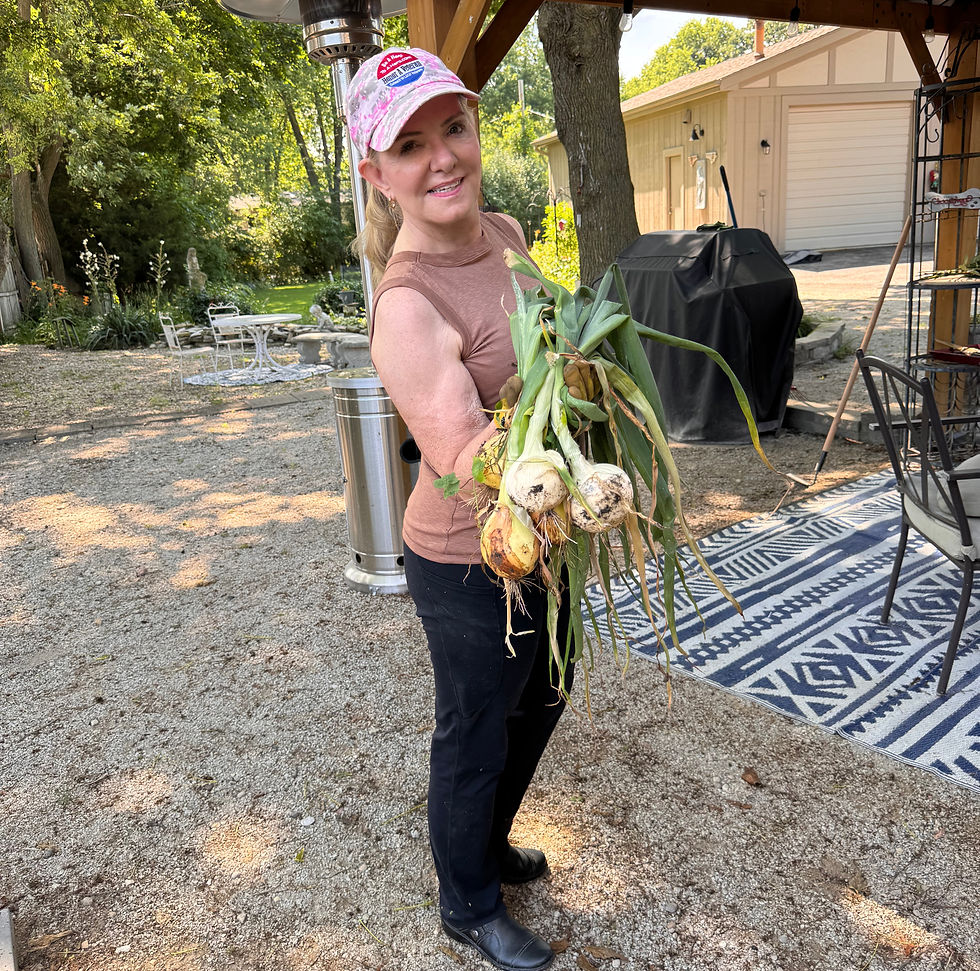I Was Filled with Excitement and Aspirations of Creating Beautiful Gardens. ... But I didn't know.
- Dr Theresa Phillips

- Jul 30, 2025
- 3 min read

When I first became a gardener, I was filled with excitement and aspirations of creating beautiful gardens, growing lovely crops, and having cabinets overflowing with delicious goodies from my own hard work.
Little did I know what that would truly entail in terms of time, effort, and dedication.
The journey of gardening involves so much more than simply planting seeds in the ground. It requires a great deal of digging, planting, weeding, and, perhaps most importantly, waiting. Each of these steps is crucial in the process of nurturing a garden and ensuring its success.
I vividly remember one particular year when my enthusiasm reached new heights. I was so excited about my garden's progress that I invited my uncle, who owned several hundred acres of farmland, to come and see the fruits of my labor. His experience and knowledge in agriculture made him the perfect person to share this moment with.
He made the three-hour drive to visit, and I eagerly led him to the garden, brimming with anticipation. As we arrived, he stood there quietly, taking in the sight of my hard work, just looking and observing the plants I had nurtured.
I was on the edge of my seat, waiting for him to shower me with compliments about how well I had done, how everything was straight and orderly, and how my garden was thriving. However, instead of the accolades I expected, he began to ask me a series of questions that left me feeling a bit uneasy.
“Did you read the package?” he inquired, referring to the seed packets. I confidently replied, “Yes, I did.” Then he asked, “Did you look out over the fields behind you?” To which I had to admit, “No, I didn’t.” Lastly, he asked, “Did you take any advice from anyone?” and again, I answered, “No.”
With a slight chuckle, he looked at me and said, “Well, that’s a fine crop of pigweed you’ve got there!” My heart sank as I realized that what I had thought were green beans were, in fact, a healthy growth of pigweed. He meant that I had taken good care of it, but it was not the crop I had intended to cultivate.
It was a humbling moment for me; I had invested so much time and energy, yet I had misidentified my plants. I thought I was growing something useful, but instead, I was nurturing a weed. Wow, what a lesson that was!
Just the other day, my husband ventured into the garden to tend to the potato plants. I had warned him about the weeds and the potato plants, but he assured me he knew what he was doing. However, to my dismay, he ended up pulling out every single potato plant while leaving the weeds behind. As a result, we now have early potatoes, but at what cost?
This incident got me thinking deeply about the common issues we all face from time to time in gardening and in life. It made me realize that when we set out to eliminate something, we must first understand its value. Life can be very much like this gardening experience.
The concept of the wheat and the tares growing together is a powerful analogy. While this holds true for many crops, it is essential to know what we are uprooting before we take action. Sometimes, our assumptions can be misguided, leading us to remove what is actually beneficial.
Thus, I believe it is crucial to study and educate ourselves to make informed decisions. My uncle’s visit was a pivotal moment that taught me the importance of knowledge in gardening and beyond. I discovered that I had been cultivating poison for my livestock, which was a shocking revelation. It served as a reminder that appearances can be deceiving.
I learned quickly from that experience, and now my husband has also come to understand the importance of knowing what you are doing in the garden. It is vital to have a clear understanding of what you are nurturing and what you are removing.
I hope that sharing these experiences and lessons helps someone else who may be navigating similar challenges in their gardening journey or in life. Understanding the value of what we cultivate and what we choose to uproot can lead to more fruitful outcomes.
Dr. Theresa Phillips











Comments